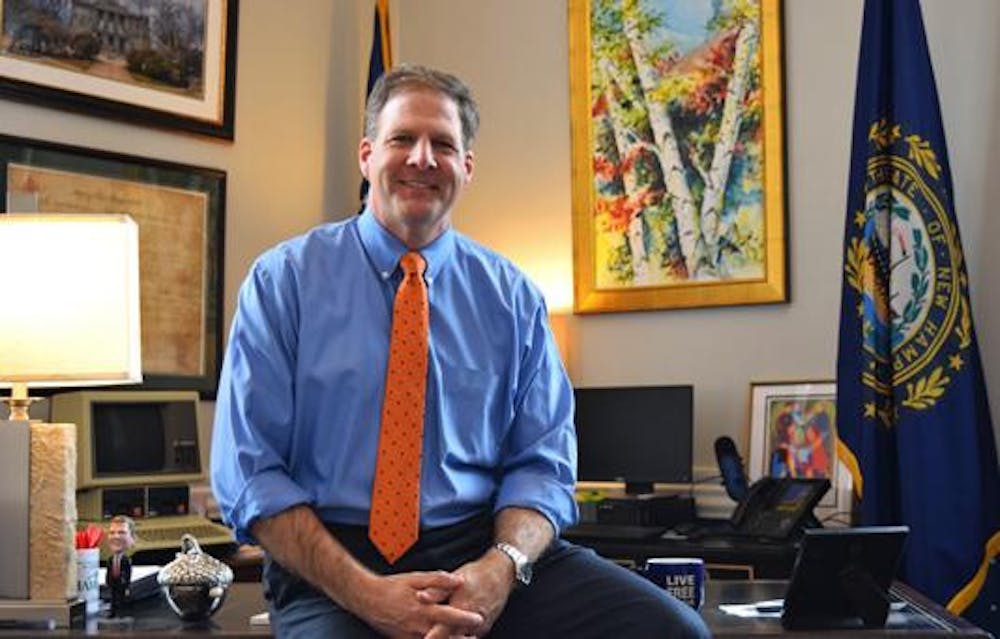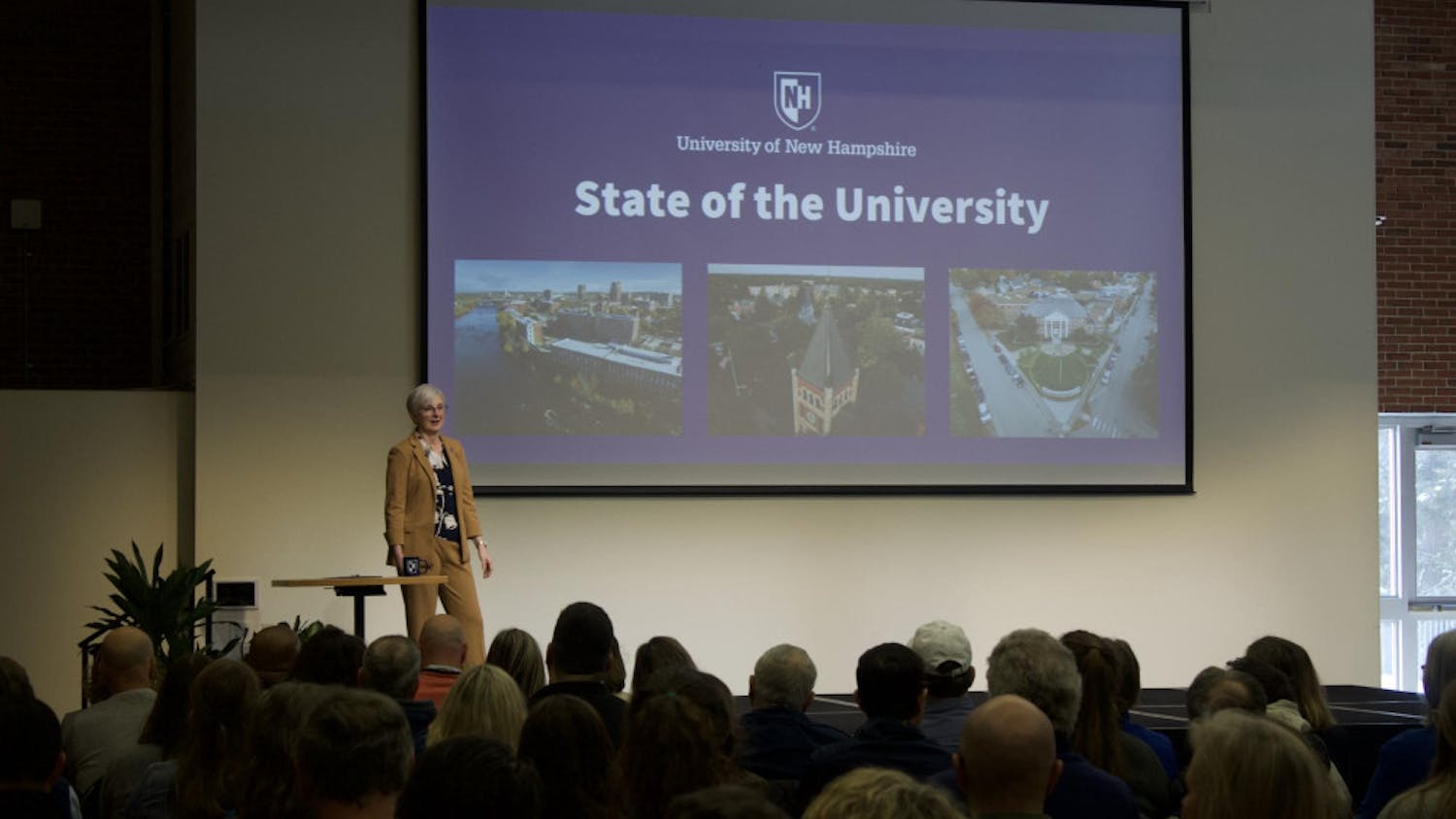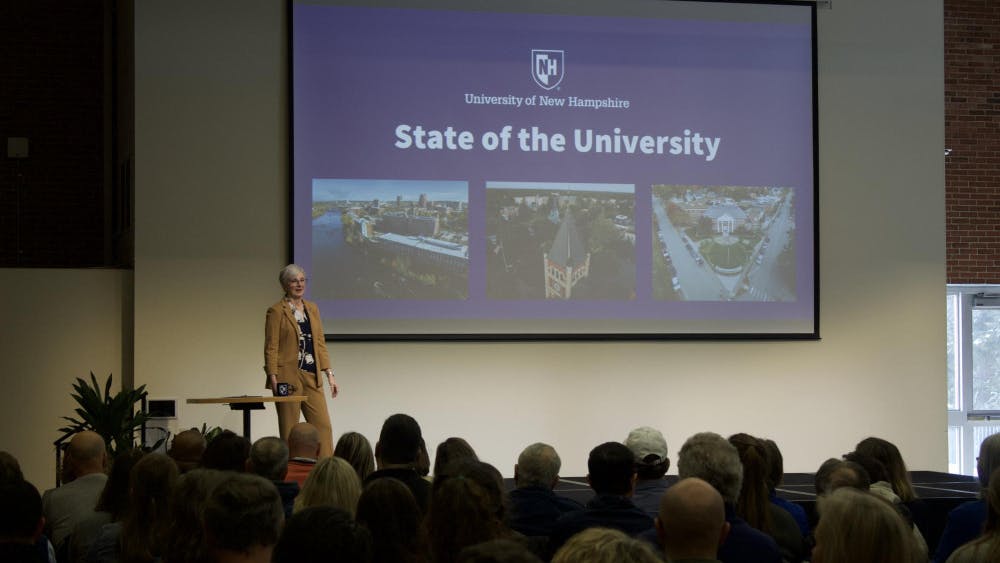Last week, a UNH survey center conducted poll showed that New Hampshire Gov. Chris Sununu is still maintaining one of the highest job approval ratings for governors in the country. The poll also offered insights into key issues like redistricting, New Hampshire’s first-in-the-nation primary, and the status of sports betting in the state.
As a part of the survey center’s monthly Granite State Poll, this poll asked 1,861 members of the Granite State panel – which includes a random sampling of politically-active New Hampshire citizens – various questions about the state of politics in New Hampshire. The headline of this month’s edition focuses on the approval rating of Gov. Chris Sununu, which has maintained being one of the highest in the country throughout the COVID-19 pandemic.
Overall, 72% of those polled approve of Sununu’s job as governor, including 90% of Republicans, 78% of Independents, and 51% of Democrats. This correlates with approval ratings of Sununu’s job in handling the COVID-19 situation which sit at 71% overall. This also follows a trend of Sununu’s high approval ratings that significantly spiked following the start of the pandemic with a high approval rating of 82% in May 2020, and held consistently around 70% for the past year.
UNH Political Science Professor and Director of the UNH Survey Center Andrew Smith spoke about some of the causes for these high approval ratings and possible implications going forward in an interview with The New Hampshire. Smith explained that moments of national crisis, such as wars or in this case, pandemics, cause high spikes in job approval for the President and Governors due to a “rallying effect.” This can be seen across the country as many governors, both Republicans and Democrats, have been seeing high approval ratings as rewards for their performance in the pandemic.
Due in part to these high approval ratings, and general success of the Republican Party in New Hampshire, many have been floating the idea of Sununu launching a potential campaign for New Hampshire’s Senate seat in 2022, a seat currently held by former Gov. and incumbent Sen. Maggie Hassan. The UNH survey center also published results from a poll last week looking at head-to-head matchups between Hassan and many potential Republican challengers. Of these challengers, Sununu currently is leading the way polling 48%-46% against Hassan. Former Republican Sen. Kelly Ayotte comes in a close second trailing Hassan 43%-48%. Also included in the poll, potential Republican newcomers Corey Lewandowski and Don Bolduc, who have each expressed some interest in running for the seat, both trail Hassan by double digits.
“It’s probably the best time in 2022 for Sununu to challenge Hassan,” said Smith, although he pointed out that current polling data shows more about name recognition for possible candidates and is not clear picture of who will win an election over 18 months away. While Sununu has not made any formal comment on running for the Senate in 2022, it is very much in the ordinary for New Hampshire governors to move on to the Senate following multiple successful terms as Governor. Both of New Hampshire’s current Senators, Jeanne Shaheen and Hassan are former multiple-term governors.
The Granite State Poll also showcases public opinion surrounding the redistricting process, specifically asking voters if they would support the implementation of an independent commission for redistricting. On this question, 39% overall support the initiative while only 15% oppose, the rest either having no opinion or not knowing about the issue. Of Democrats, 57% support the plan compared to 35% of Independents and only 20% of Republicans. This issue could potentially become more contentious as the redistricting process moves forward later in the year with state Republicans holding control of the legislative branch tasked with the redistricting process.
On another note, the poll sees a decrease in public opinion surrounding the importance of New Hampshire’s first-in-the-nation primary. Overall, 63% of those surveyed felt it was important for New Hampshire to maintain first in the nation status with 33% thinking it is not important. This is a sharp decline from 2008, when 81% of people felt it was important and only 18% did not, marking a 33-point net drop. This is especially seen among liberals and Democrats, with only 57% of liberals currently believing it is important versus 91% of liberals in 2008.
Smith said, “Many democrats are listening to the national narrative that New Hampshire is too white and too wealthy to have the first in the nation primary and that New Hampshire does not represent the diversity of the United States or the Democrat party.” He also explained that many New Hampshire Democrats, both moderates and progressives, are dissatisfied with the past few primary seasons. In 2008, 2016, and 2020, the Democrat who won New Hampshire (Hillary Clinton in 2008 and Bernie Sanders in 2016 and 2020) would go on to not win the nomination.
On a less political note, 44% of those surveyed said they approve of legalized sports betting in the state with only 16% disagreeing, showing very good public perception now in the second year of sports betting in New Hampshire. In addition, 34% of respondents showed support for ending the limit on physical sports betting locations with 25% in opposition. While 43% of both Republicans and Independents showed support for this initiative, only 20% of Democrats were in favor. Smith explained that this disparity could be caused by the perspective of many Democrats seeing taxation of sports betting as a non-solution to the state taxation situation. Instead, many Democrats are in favor of some kind of broad tax either on income or sales. Many also view gambling and its subsequent tax revenue as a regressive tax that takes from poorer people as opposed to the wealthier who do not indulge in gambling.
The UNH Survey center is constantly publishing new reports, including its monthly Granite State Polls and surveys on many other important political issues.
Photo courtesy of Gov. Chris Sununu












